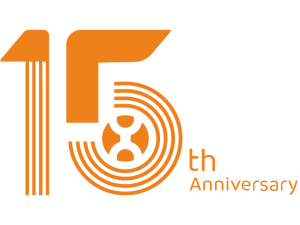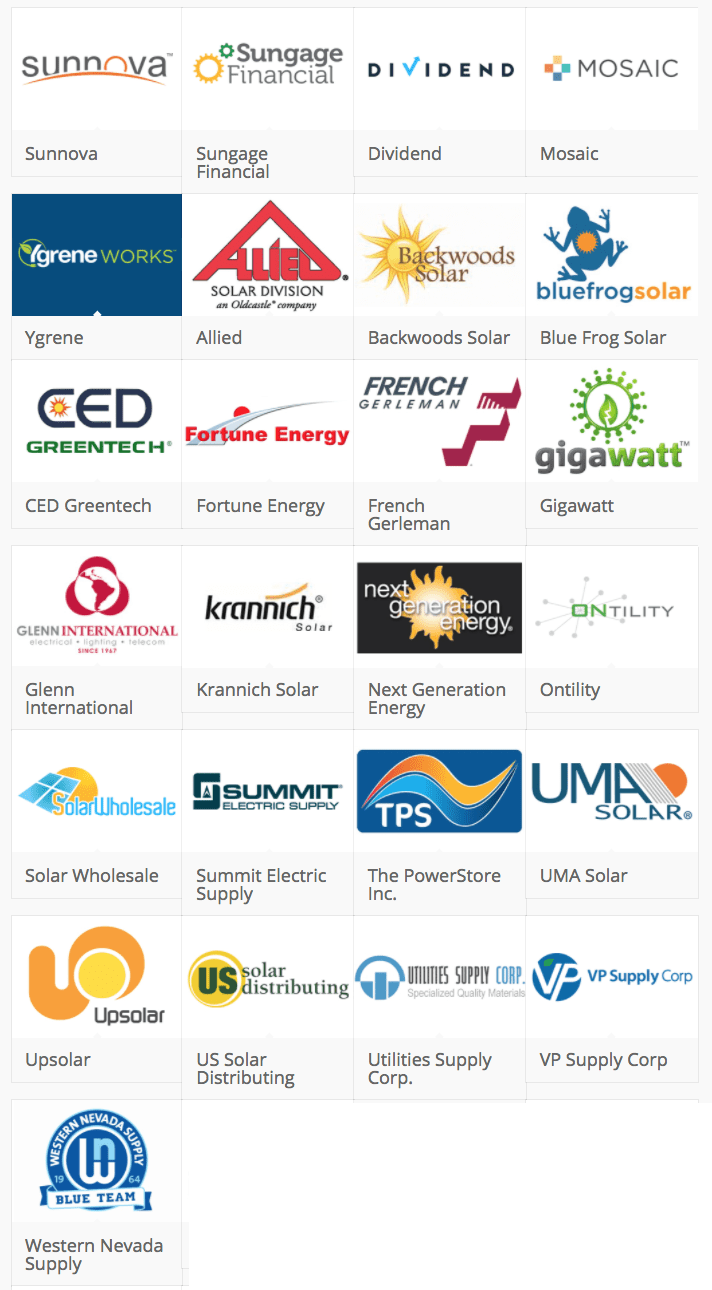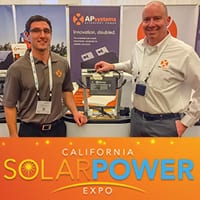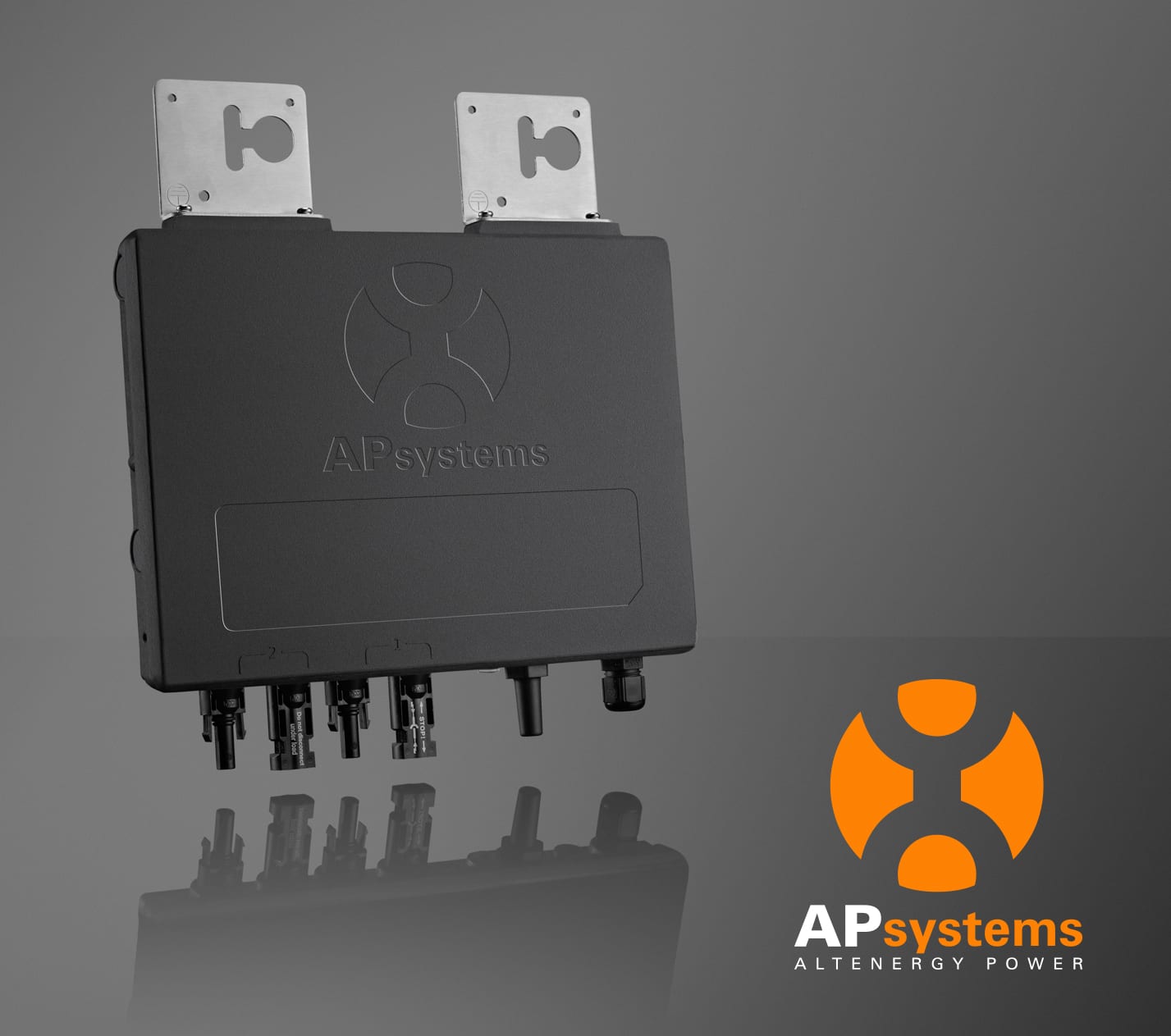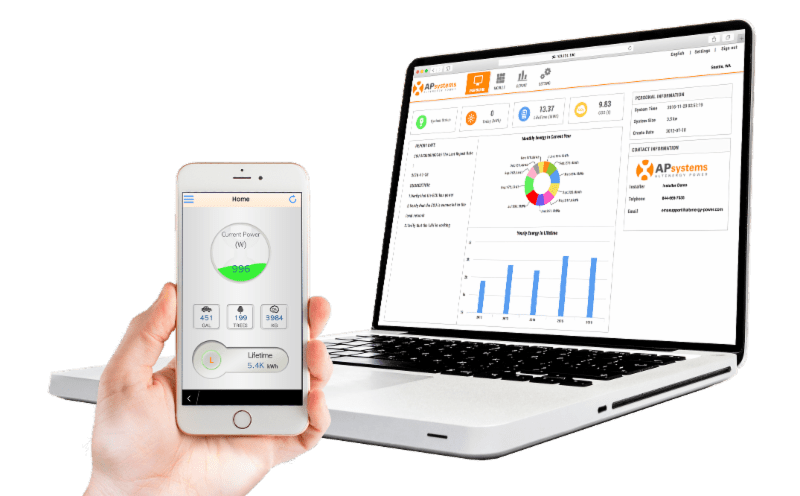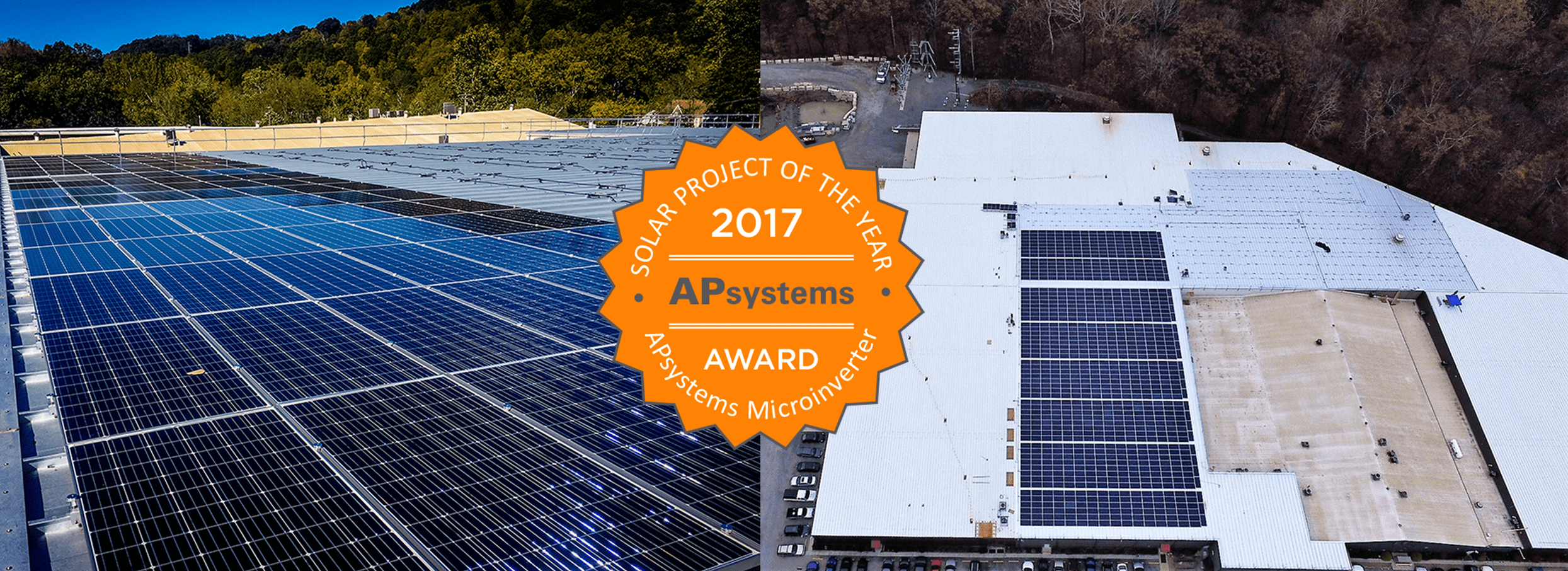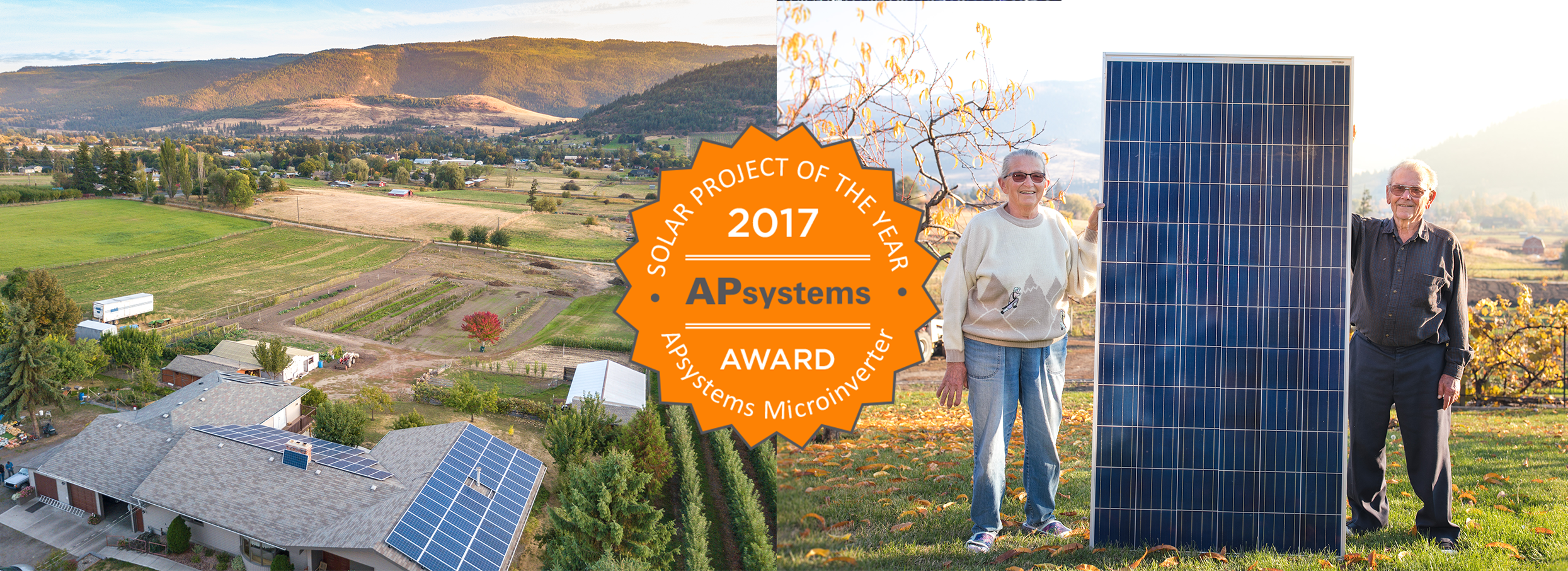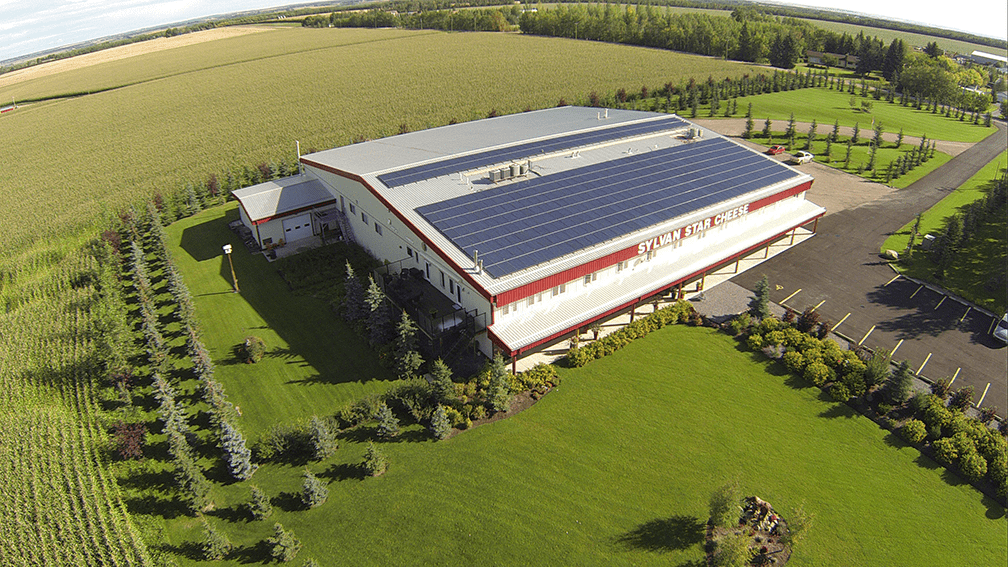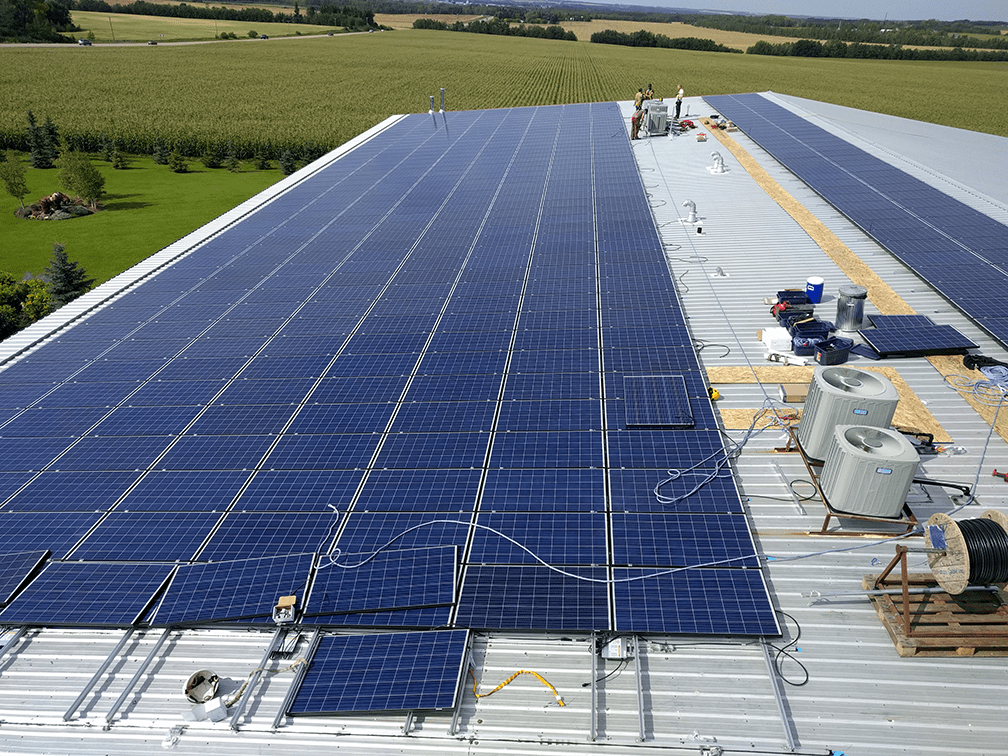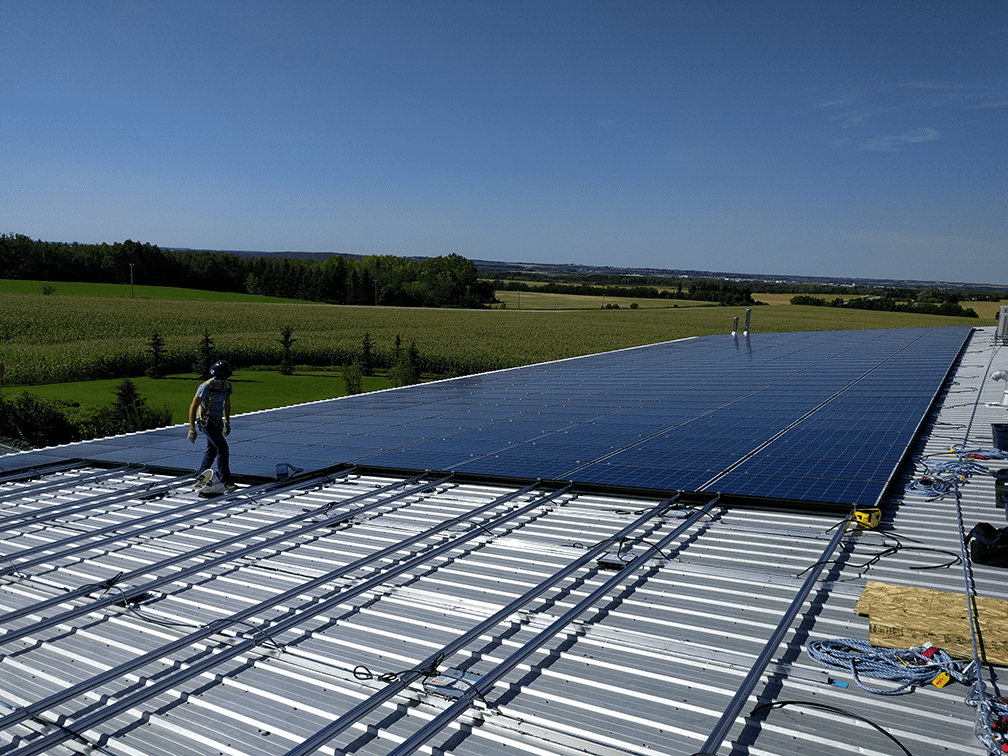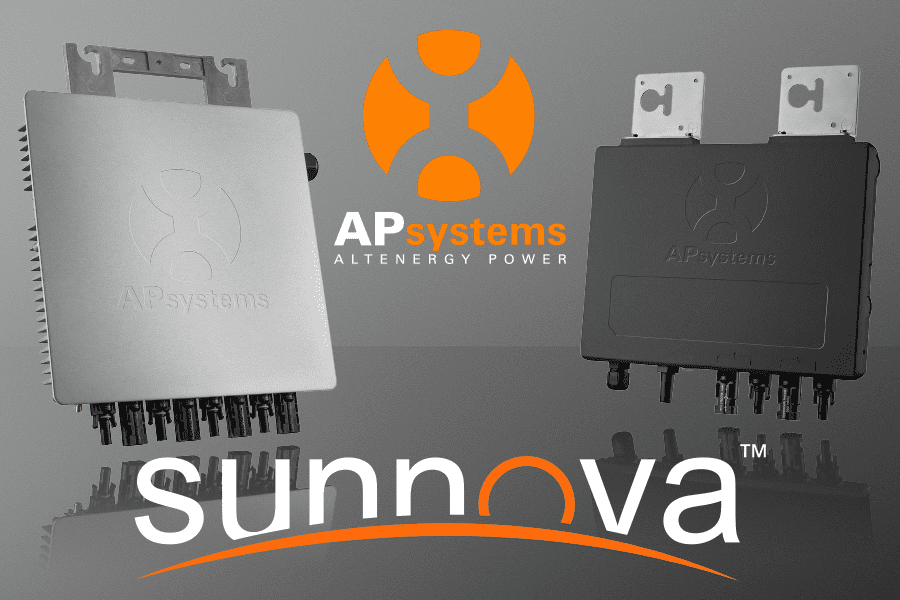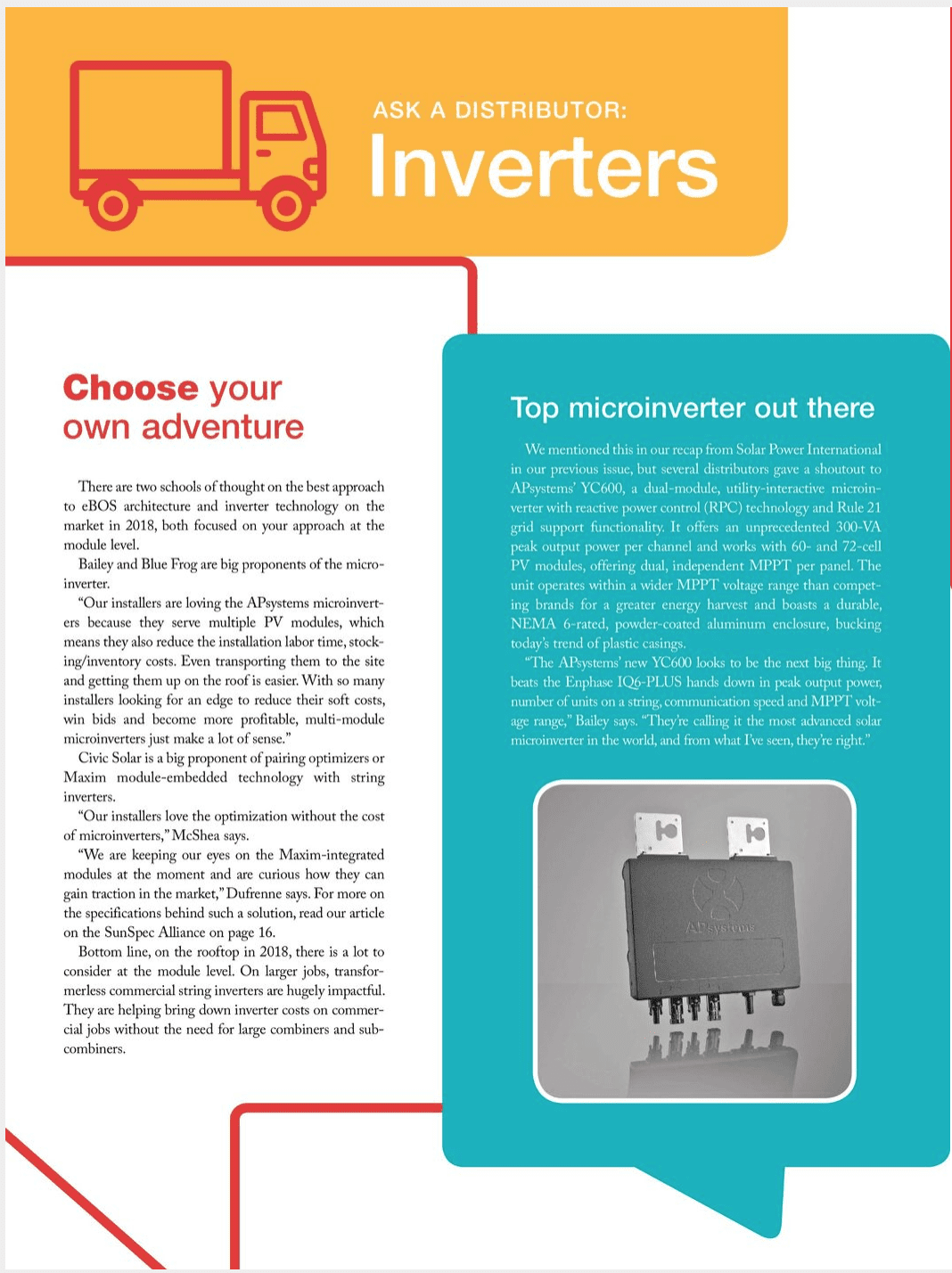APsystems brings groundbreaking YC600 microinverter to CSPE, March 27-28
/in Events, General News, Trainings/by APsystems TeamAPsystems brings the new YC600 grid-interactive microinverter to the California Solar Power Expo, March 27-28 in San Diego.
Christopher Barrett, senior director of engineering for APsystems, will offer a training session 1:45-2:45pm PT on Tuesday March 27, introducing this groundbreaking new utility-interactive microinverter with Reactive Power Control (RPC) technology. The pinnacle of microinverter technology, the YC600 meets CA Rule 21 requirements and is inherently NEC 2014/2017 Rapid Shutdown compliant.
The seminar is registered to confer 2 NABCEP CE credits. Contact support.usa@APsystems.com to register today.
Find the APsystems team at Booth 58 in the Lower Level Exhibit Hall of the San Diego Convention Center.
The California Solar Power Expo is an interactive event designed for solar, smart energy, and storage professionals who are working in and with the California solar market to make powerful business connections. The event will feature exhibitor-led training for installers, contractors, developers and the entire solar and storage supply chain, as well as networking opportunities.
More than 70 exhibitors and 1,500 attendees are expected.
Click here for more information on this year’s California Solar Power Expo, or email sales.usa@APsystems.com to set up a meeting during this year’s event.
APsystems YC600 smart-grid microinverter NOW SHIPPING in USA
/in General News, Press Releases/by APsystems TeamThe world’s most advanced solar microinverter, the smart-grid compliant YC600 from APsystems, is now shipping in the U.S. market.
A true utility-interactive microinverter with Reactive Power Control (RPC) technology, the YC600 meets CA Rule 21 requirements and is NEC 2014/2017 Rapid Shutdown compliant. The YC600 sets a bold new standard for solar microinverter technology, boasting an unprecedented 300VA peak output per channel and accommodating 60- and 72-cell PV modules.
A wider MPPT voltage range than competing brands means greater energy harvest for homeowners, and the unit is shelled in a rugged, NEMA 6/IP67, powder-coated aluminum enclosure, bucking today’s trend of plastic casings.
The YC600 builds on the successful APsystems line of multi-module microinverters, simplifying installation while reducing installation costs and time on the job site.
YC600 features include:
- Dual-module microinverter with independent MPPT
- Utility-interactive with Reactive Power Control (RPC)
- CA Rule 21 compliance
- Continuous power of 274VA per channel, 300VA peak
- Accommodates modules from 250-365W+
- Wide MPPT voltage range (22V-45V)
- Meets NEC 2014/2017 690.12 Rapid Shutdown requirements
- ZigBee communication & free monitoring
Contact your local distributor or sales.usa@APsystems.com to bring the YC600 to your customers today.
APsystems expands EMA system monitoring & alert capabilities
/in General News/by APsystems TeamNew features provide comprehensive visibility and enhanced remote troubleshooting
APsystems proudly announces new system monitoring alert capabilities within its online EMA portal. The new alerts will improve communication regarding any production and communication issues with an enhanced email alert protocol, giving installers and homeowners further insight into any potential issues affecting their systems.
While the APsystems EMA has always provided system production reports and alerts, the new alerts will be more targeted, more frequent and more informative.
- System alerts will notify an installer if one of their installed systems has an inverter that ceases producing energy.
- Registration alerts are issued in the case of inaccurate or incomplete system registration.
- Communication interrupt alerts will notify installers in cases where their ECU gateway ceases communicating properly with the EMA online monitoring system which could indicate an interruption of communication between inverters, ECU and/or EMA; or simply a local internet, ISP or router issue.
- Production alerts will notify installers of unusually low power production at the individual inverter level, giving them an opportunity to check status online and verify proper operation.
These alerts offer installers a more refined tool for notification and troubleshooting of potential system issues. As with any apparent issue, APsystems always recommends contacting our technical support team if you suspect a problem. Most issues can be reviewed and resolved online and without a truck roll.
Changes made to the EMA are seamless and will be automatically available to all new registered systems and over 31,000 existing APsystems installations worldwide.
Gold Sponsor APsystems offers training at NABCEP, March 19-22
/in Events, General News, Trainings/by APsystems TeamAPsystems will offer installer training at the NABCEP Continuing Education Conference 2018, March 19-22 in Niagara Falls, N.Y.
Presenters will be John Doerr, APsystems applications engineer and Gonzalo Caballero, NABCEP certified technical services specialist.
Seminars include:
- Commercial Three Phase Microinverter Solutions–Includes Design for Communication, Tuesday, March 20th, 1:30-3:00 p.m. in the Governor’s Amphitheatre
- Microinverters in the Residential Environment: APsystems YC500 & YC600 Dual-Module Solutions – Wednesday, March 21st, 8-9:30 a.m., Governor’s Amphitheatre.
To register for the seminars, log into your NABCEP profile and choose one or both of the titles above.
APsystems is a Gold Sponsor and exhibitor at this year’s conference. See the conference schedule and other exhibition details here.
About our presenters:
John Doerr contributes over 30 years of experience in management with startups, manufacturing and customer support, as well as national and international consulting. His work includes development and contractor management of commercial, residential and multifamily projects. John provides the pre- and post-sales technical training and supports installer needs for application engineering and design.
Gonzalo Caballero has been working in the PV industry for 8 years and holds the position of Technical Services Specialist with APsystems. He has previously held positions with iTek and Blue Frog Solar, consulted for NWIEC & H2E Corp and is a NABCEP Certified PV Installation Professional.
About the NABCEP CE Conference: This conference is primarily intended for NABCEP Certified Professionals who need continuing education credits in order to maintain their certification. The content presented in this conference is geared toward seasoned PV industry professionals who have several years of installation and/or technical sales experience. This is the ideal opportunity for NABCEP Certified PV Installation Professionals and PV Technical Sales Professionals to obtain all of the continuing education credits needed for recertification (18 hours every three years). Non-certified professionals can earn up to 18 hours toward certification eligibility. Information: www.nabcep.org.
Lowen home and organic family farm, Coldstream, British Columbia
/in Case Studies, Contests, General News/by APsystems TeamHelmi and Kornelius Lowen of Coldstream, British Columbia, wanted to eliminate their power bill – or better yet, start getting a check from the power company under the local net-metering program. Working with a leading Canadian installer Got Solar?, they were able to populate three slopes of their farmhouse roof with solar panels powered by APsystems microinverters.
The output from the solar array should come very close to achieving “net-zero” and maybe even “net-positive,” creating more power than the Lowen home and farm consume in a year. The grid-tied array was so ambitious, local power provider BC Hydro came out and upgraded the transformer and replaced the pole – at no charge to the Lowens.
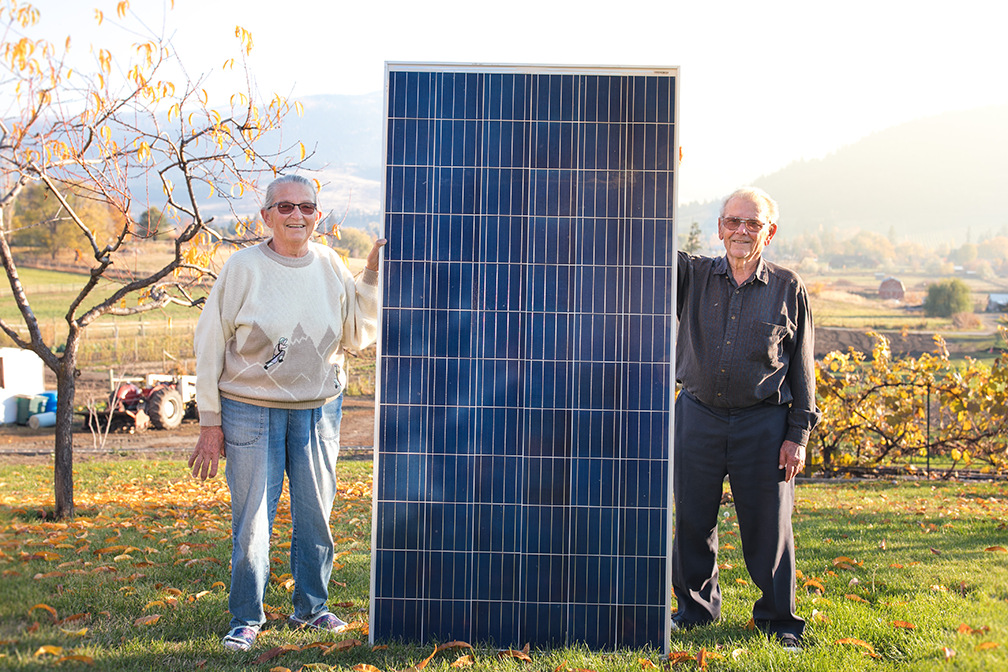
Add it up, and the Lowens earn distinction as Canada’s first 100-percent solar organic farm.
“What makes this project so special, is that even before we installed the solar system, the Lowens in essence already used solar power to create the majority of their profits,” said Chris Palmer of Got Solar? “The fruits, vegetables and other produce grown by this organic farm are all powered by the sun.”
The 3.7-acre family farm in Canada’s rich Okanagan valley raises tomatoes, onions, cucumbers, strawberries, spinach, lettuce, potatoes, beans, peas, beats, corn, squash, zucchini, and in one recent year, some 27,000 heads of garlic.
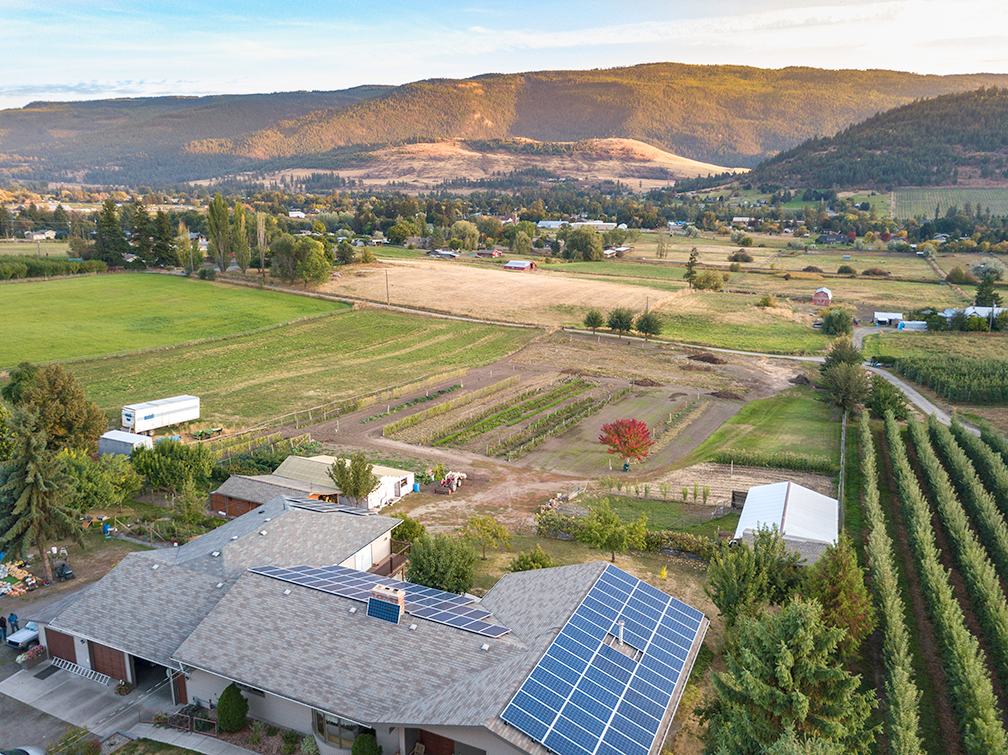
“Just about anything you need in a kitchen, it’s right here,” Helmi Lowen told Okanagan Seniors in a video feature. “I get bored very quickly and so does Kornelius, so we enjoy doing the gardening.”
Perhaps more impressive: the Lowens, now in their late 70s and mid-80s, respectively, still work the farm largely on their own.
By helping the Lowens create enough power for both home and farm, Got Solar? and APsystems microinverters helped the couple complete the last link in their quest for self-sustainability. And they still plan to upgrade to an electric car.
Launched in 2015, Got Solar? provides grid-tied and off-grid solar energy systems in Kelowna, B.C., and surrounding areas for residential and commercial clients. They are also the only solar company in the Okanagan that caters to DIY installers.
For the Coldstream Corner project, Got Solar? selected APsystems YC500 dual-module microinverters to support 93, 315-watt modules by Canadian Solar, all but two being 72-cell units. Two 60-cell modules were required due to space constraints around a chimney.
Palmer cited the flexibility of APsystems microinverters that allowed system designers to handle the different module sizes seamlessly. That promises forward-compatibility through the life of the array, he said.
“Should a solar module ever be damaged or fail in the next 30 years, APsystems has essentially ‘future proofed’ their product by making it so widely compatible through its wide-ranging input capabilities,” Palmer says. “No longer do you have to try and find vintage matching panels, rather, you replace with whatever is currently in use and in inventory.
“Thank you, APsystems, for allowing our crews to have shorter installation times, higher productivity, and ease-of-installation that has no equal.”
Like APsystems microinverters, the Lowens are proud examples of industry and productivity over the long haul.
“A lot of seniors come here and say, ‘I couldn’t do what you’re doing,’ and I don’t believe that,” Helmi Lowen told Okanagan Seniors. “A lot of people could do it. They don’t have to do it, but they could do it. They say no to big gardens, but they could start small in their own backyard or even in their apartment. There’s always a plot there for seniors to go and get their hands dirty.
“If you say you can’t, you can’t. But if you say you can, you can.”
Location: Okanagan, British Columbia
Capacity: 29kW
Installer: Got Solar?, B.C., Canada
Modules: Canadian Solar 315W, 72-cell and 60-cell monocrystalline
Number of modules: 93
Microinverters: APsystems YC500 dual module
No. of microinverters: 47
Cleaveland-Price, Canada’s Got Solar? earn APsystems Project of the Year Awards
/in Case Studies, Contests, General News/by APsystems Team![]()
Congratulations to Cleaveland-Price of Trafford, Penn., and Got Solar? of British Columbia, Canada, winners of APsystems Project of the Year Awards.
Cleaveland-Price is honored in the Commercial category for the massive 673kW rooftop array powering the company’s high-voltage switch factory. The project uses APsystems YC1000 true 3-phase microinverters to handle the 2,245-module array, the company’s first-ever venture into solar installation.
Got Solar? is honored in the Residential category for the Lowen family’s Coldstream Corner Farms net-zero project. The 29kW array atop the Helmi and Kornelius Lowen residence in Okanagan, B.C., earned distinction as Canada’s first 100-percent solar organic family farm.
“Microinverter technology is the smart choice for projects of every scale, as these two outstanding winners demonstrate,” said Jason Higginson, senior director of marketing for APsystems. “While their installations are much different in size and capacity, they help the customers achieve the same goal of energy independence. Cleaveland-Price and Got Solar? set a great example for all commercial and residential installers looking for power, reliability and value from their rooftop microinverter arrays.”
Read more about the Cleaveland-Price commercial installation here.
Sylvan Star Cheese Factory
/in Case Studies, General News/by APsystems TeamCanadian cheese maker Sylvan Star’s gouda has a secret ingredient: the sun.
The Red Deer, Alberta’s plant is powered by a massive solar array featuring APsystems YC1000 true 3-phase microinverters. The owners worked with local installer CarbonBite Innovations and National Solar Distributors of Edmonton toward achieving a 100-percent solar, net-zero installation. The 460-module, 122kW array was commissioned in 2016 and now powers the processing of popular and award-winning cheeses for the dairy operation.
See a video feature on the project here.
Location: Red Deer, Alberta, Canada
Installation Date: 2016
Installer : CarbonBite Innovations, Alberta
Number of modules: 460
Module brand/wattage: Canadian Solar 265W CX6P-265P
System capacity (kw): 122kWDC or 115kW AC
Microinverter: APsystems YC1000-208V
No. of Microinverters: 115
APsystems joins Sunnova Approved Vendor List
/in General News, Press Releases/by APsystems TeamFOR IMMEDIATE RELEASE
SEATTLE, Washington – January 30, 2018 – APsystems joined the approved vendor list for Sunnova, a leading U.S. residential solar and energy storage service provider.
The agreement brings APsystems advanced microinverter technology to Sunnova’s portfolio of top-tier, consumer-friendly solar services. Sunnova offers an array of solar lease, lease-to-own, and power-purchase options for customers all across the United States.
“Sunnova has earned a strong reputation for easy, no-nonsense solar packages for consumers,” said Jason Higginson, Senior Director of Marketing for APsystems USA. “We’re glad to bring our solar microinverter technology to their platform, to help more homeowners nationwide enjoy energy self-sufficiency and savings.”
“Our goal is to offer our customers a brilliant choice for energizing their lives,” said John Santo Salvo, SVP of Channel Operations and Chief Procurement Officer at Sunnova. “We believe APsystems’ advanced microinverter offering is an ideal addition to our customer-empowering portfolio of solar solutions.”
APsystems is listed on Sunnova’s 2018 Approved Vendor List and is now an option in their system solution platform.
_________________
About Sunnova
Sunnova is a leading U.S. residential solar and storage service provider whose mission is to help power solar, savings, reliability and most importantly, life, forward. Offering various rooftop solar system solutions, Sunnova provides its customers with the opportunity to customize their own systems. Sunnova isn’t simply a solar company, but a power provider that offers people a brilliant choice for energizing their lives. For more information, visit www.sunnova.com.
APsystems microinverters touted in Solar Builder magazine
/in General News, Press Coverage/by APsystems TeamAPsystems microinverters get a shout-out in the January edition of Solar Builder magazine, on newsstands and online now.
Tim Bailey, founder of Blue Frog Solar, a leading APsystems distributor, touts microinverters as a great way for smaller installers to lower soft costs by simplifying residential system design—a big advantage over complex string inverter systems.
“Microinverters are flexible, and installers can design in the field by adding modules as they see fit,” Bailey says.
Read Solar Builder’s “Ask A Distributor” feature online here.
APsystems
APsystems is the #1 global multi-platform MLPE solution provider, offering microinverter, energy storage and rapid shutdown devices for the solar PV industry. APsystems brands include APsmart and APstorage. Founded in Silicon Valley in 2010, APsystems encompasses 4 global business units serving customers in over 100 countries. With millions of units sold producing more than 4TWh of clean, renewable energy, APsystems continues to be a leader in the ever-growing solar MLPE segment.
News
 Vegas, Here We Come!July 22, 2025 - 11:40 pm
Vegas, Here We Come!July 22, 2025 - 11:40 pm Introducing APsystems Academy: Your Gateway to Expert Solar TrainingAugust 7, 2025 - 5:57 am
Introducing APsystems Academy: Your Gateway to Expert Solar TrainingAugust 7, 2025 - 5:57 am Say hello to Ava, our official Solar Pup here at APsystems!August 22, 2025 - 7:50 pm
Say hello to Ava, our official Solar Pup here at APsystems!August 22, 2025 - 7:50 pm APsystems Featured in Solar Builder: Leading the Charge on AI in SolarAugust 7, 2025 - 6:21 am
APsystems Featured in Solar Builder: Leading the Charge on AI in SolarAugust 7, 2025 - 6:21 am TEDDY Talks Takes Scottsdale: Two New Episodes Live!August 7, 2025 - 5:53 am
TEDDY Talks Takes Scottsdale: Two New Episodes Live!August 7, 2025 - 5:53 am
Contact Details
At APsystems, we are committed to providing the highest quality service to our customers and partners around the world.
8627 N. Mopac Expy, Ste 150
Austin, TX 78759
United States of America
Phone:1-844-279-8600
